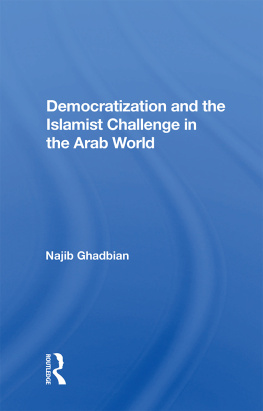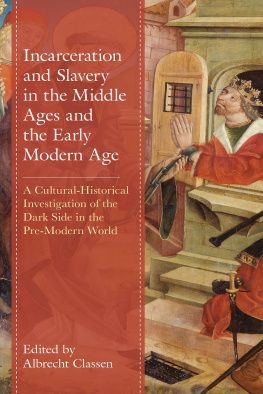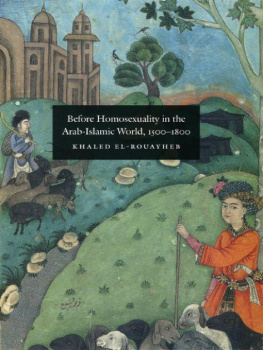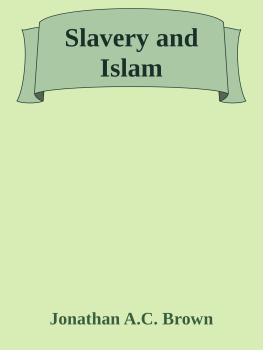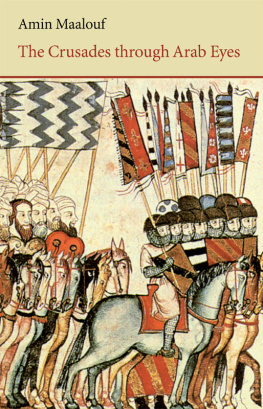Murray Gordon - Slavery in the Arab World
Here you can read online Murray Gordon - Slavery in the Arab World full text of the book (entire story) in english for free. Download pdf and epub, get meaning, cover and reviews about this ebook. year: 1998, publisher: New Amsterdam Books, genre: Religion. Description of the work, (preface) as well as reviews are available. Best literature library LitArk.com created for fans of good reading and offers a wide selection of genres:
Romance novel
Science fiction
Adventure
Detective
Science
History
Home and family
Prose
Art
Politics
Computer
Non-fiction
Religion
Business
Children
Humor
Choose a favorite category and find really read worthwhile books. Enjoy immersion in the world of imagination, feel the emotions of the characters or learn something new for yourself, make an fascinating discovery.

- Book:Slavery in the Arab World
- Author:
- Publisher:New Amsterdam Books
- Genre:
- Year:1998
- Rating:4 / 5
- Favourites:Add to favourites
- Your mark:
- 80
- 1
- 2
- 3
- 4
- 5
Slavery in the Arab World: summary, description and annotation
We offer to read an annotation, description, summary or preface (depends on what the author of the book "Slavery in the Arab World" wrote himself). If you haven't found the necessary information about the book — write in the comments, we will try to find it.
Slavery in the Arab World — read online for free the complete book (whole text) full work
Below is the text of the book, divided by pages. System saving the place of the last page read, allows you to conveniently read the book "Slavery in the Arab World" online for free, without having to search again every time where you left off. Put a bookmark, and you can go to the page where you finished reading at any time.
Font size:
Interval:
Bookmark:
SLAVERY IN THE ARAB WORLD



ARAB WORLD
by
Murray Gordon

Copyright by Editions Robert Laffont, S. A., Paris, 1987
Introduction to the first American edition,
Copyright 1989 by Murray Gordon
All rights reserved.
First published in the United States of America in 1989 by
NEW AMSTERDAM BOOKS
First paperback edition published in 1992.
Originally published in France as
LEsclavage dans le monde arabe
Library of Congress Cataloging-in-Publication Data
Gordon, Murray.
Slavery in the Arab world.
1. SlaveryArab countriesHistory. 2. Slave-tradeArab countriesHistory. 3. Slavery and IslamHistory. I. Title.
HT1317.G6713' 1989
306'.362'09174927 | 88-34493 |
CIP |
ISBN 0-941533-30-1(cloth)
ISBN 1-56131-023-9 (paper)
This book is printed on acid-free paper.
Manufactured in the United States of America.
To Cora, Elana, Jonathan, Tamara and David
SLAVERY IN THE ARAB WORLD ANTEDATED BY MORE THAN a millennium the establishment of this appalling institution by Europeans in the New World. It continued to flourish, moreover, for more than a century after the tocsin had sounded for it in the West. As many as eleven million Africans, approximately the same number estimated to have been taken from Africas West Coast in the European-controlled triangular slave trade, were forcibly removed from their families and communities to do service in Arab households, harems and armies.
Despite the long history of slavery in the Arab world and in other Muslim lands, little has been written about this human tragedy. Except for the few abolitionists, mainly in England, who railed against Arab slavery and put pressure upon Western governments to end the traffic in slaves, the issue has all but been ignored in the West. In contrast to the endless flow of books and articles that have enriched our understanding of slavery and the traffic in slaves from West Africa to the New World, the slavery that for centuries was an integral feature of Arab society has escaped the attention of Western scholars. Ignorance of Arab history or perhaps a bad conscience about the Wests shameful record in this sordid business may help account for these vast gaps in Western historiography.
Something better might have been expected of Arab historians. Yet, here too, a conspiracy of silence has prevailed and has blocked out all light on this sensitive subject. Arab writers and jurists, to the limited extent that they touched upon slavery, have done so with approval. No moral opprobrium has clung to slavery since it was sanctioned by the Koran and enjoyed an undisputed place in Arab society.
The decision by Arab states to abolish slavery during this century was taken for reasons that had little to do with the moral aspects of the issue. Pressure from Western powers, the introduction of a money economy, and the realization that maintaining slavery would forever bar Arab nations from entering the councils of international society provide a much better explanation for their announced policy. That slavery and the slave trade were inherently evil and therefore merited abolition were thoughts alien to Arab heads of state and their followers.
It is this failure to have consigned slavery to moral oblivion that explains why it endured so long in the Arab world. The perennial character of this social institution ultimately rested on religiously inspired valuesa point that few Arabs were prepared to challenge. And because slavery was never questioned from a moral standpoint, it should be no surprise that it still persists in Mauritania and in the Sudan. Mauritania officially abolished slavery on July 5, 1980, but, as the government itself acknowledges, the practice is still alive and well. It is estimated that 200,000 men, women and children are subject to being bought and sold like so many cattle in this North African country, toiling as domestics, shepherds and farmhands.
Slavery and slave-raiding, which never fully died out in the Sudan, have reappeared on a large scale in the disaffected southern region of the country which has been fighting off and on for autonomy against the Muslin-dominated North. In 1987, the head of International Catholic Mission confirmed reports of widespread slave-raiding in the southern Sudan that was being carried out by armed Arab militias, notably from the Rizagat tribe, against defenseless members of the Dinkas, a people that from time immemorial have been hunted down by Arab slavers.
According to this source, as well as accounts by journalists and scholars, hundreds if not thousands of people have been carried off by slave traffickers. The great majority of the victims are children between the ages of eight and fourteen who are forced to march from their native lands to the North where they are sold into slavery. These reports have it that boys were being sold for the equivalent of  240 and girls for
240 and girls for  160. A Sudanese historian from the University of Khartoum who had the courage to write about the recrudescence of slavery and slave-raiding in his country was arrested by the police. Can it be merely a coincidence that the prime minister of the Sudan, who is committed to a policy of imposing Islamic Sharia law on the country, is Sadek el Mahdi, whose great-grandfather defeated the British a century ago and revived the slave trade?
160. A Sudanese historian from the University of Khartoum who had the courage to write about the recrudescence of slavery and slave-raiding in his country was arrested by the police. Can it be merely a coincidence that the prime minister of the Sudan, who is committed to a policy of imposing Islamic Sharia law on the country, is Sadek el Mahdi, whose great-grandfather defeated the British a century ago and revived the slave trade?
To many Arabs, the issue of slavery is a source of discomfort. To speak out against it would be to impugn a tenet of Koranic law; to condone slavery would give offense to Africans whose ancestors and not-too-distant relatives in recent times fell victim to Arab slave traders and their agents. As a result, they instinctively keep silent on the subject, which to this day is a source of pain and humiliation for many Africans.
IT IS A CURIOUS TWIST TO THE STUDY OF THE SLAVE TRADE that historians have conducted their inquiries into this nefarious traffic from the perspectives of the Americas and the sugar islands of the Caribbeans. Almost irresistibly, their attention has been drawn to the transatlantic trade which, from the middle of the fifteenth century down to the third quarter of the 1800s, brought an estimated ten million blacks across the Atlantic Ocean to work the plantations and mines of the New World. It was this traffic in blacks from Africas West Coast, initiated by the Portugese in 1441, that provided the labor that fueled the rapid economic development of Brazil and the old American South; it made possible the growth of the plantations in Jamaica, Barbados, Hispaniola, St. Lucia, and the other islands in the Caribbean where sugar fortunes grew. As the trade in each succeeding year bounded forward and as the economic stakes in the service, manufacturing, and shipping industries which were dependent upon the trade multiplied, competition among the key actors, notably Portugal, England, France, Spain, and the United Provinces, for a share in the business intensified.
Next pageFont size:
Interval:
Bookmark:
Similar books «Slavery in the Arab World»
Look at similar books to Slavery in the Arab World. We have selected literature similar in name and meaning in the hope of providing readers with more options to find new, interesting, not yet read works.
Discussion, reviews of the book Slavery in the Arab World and just readers' own opinions. Leave your comments, write what you think about the work, its meaning or the main characters. Specify what exactly you liked and what you didn't like, and why you think so.

